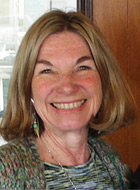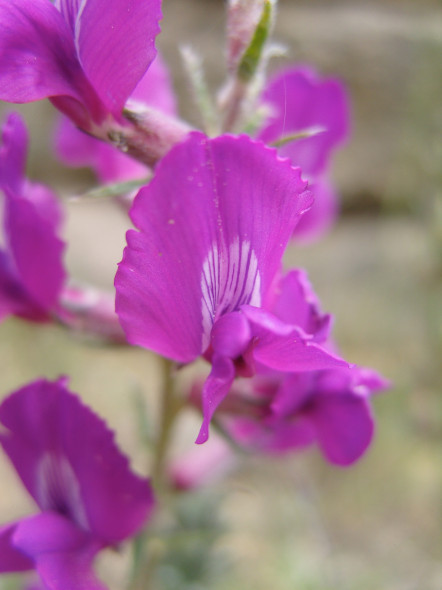.By Travis Newbill
There may be no more sure-fire way of waking up to the preciousness of life than facing the reality of death. But, how can we do that? Sometimes it happens in an unavoidable way–we have a near death experience, or we see someone die. Every once in a while, a big death moment happens.
Also though, as we know, impermanence marks every passing moment. It is the ever-present truth, which we seem to be quite in the habit of ignoring. Every breath is a death. Every meal, relationship, day and night, have their ends. Perhaps if we could wake up to impermanence in a more consistent and profound way, we could live and appreciate our lives more fully and go through our end-of-life “big” deaths more gracefully.
Dominie Cappadonna is a wonderful teacher who focuses on helping us do just that. In May, she’ll be leading a weekend program here at Shambhala Mountain Center called: Befriending Small Deaths, Big Deaths. And we’ve recently had the good fortune of having some discussion with her around these ever-mystifying topics.
You may listen to and/or download an audio recording of the interview by following this link (click here), or scroll down to read the transcription.
SMC: Besides having a near-death experience, which I don’t feel inclined to manufacture, how can I wake up to the reality that I am actually going to die?
Dominie Cappadonna: What a beautiful and profound question. It brings us right up to the edge of our knowledge–of our know-ledge, where we’re prompted to leap off the cliff into the unknown. Now, it seems that the question you’re asking can be asked more boldly than before–particularly within our human family, in our technological societies. Before, death was not spoken of as freely. I might just set a little ground here, in terms of the field, and begin to weave in response to your question. Is that okay?
Yes, please.
I really find that the question you’ve asked is being asked more these days because there’s a generalized resurgence in focus on death and dying . We’re living longer and yet feeling our mortality earlier. I feel that’s due to the cascade of crisis world-wide being so nakedly exposed–climate change, extinction of species, the dying off of our natural environment, wars, diseases, suicides, on and on.
So, here, now in the US, there is a movement called the Silver Tsunami, which refers to young elders and Boomers waking up to daily dying in small and big ways, of time passing and of preparation for a conscious passing at the end of life.
Our small deaths are actually practice moments for the big death at the end of life. Practice moments include taking in the breath in our meditation practice–the inhale, the abiding, and then the ceasing of our breath. Letting go into the reality that that breath may be our last one is one way to wake up to the reality of our death.
Small deaths also include so-called larger transitions–divorce, loss of work, loss of physical vigor, illnesses, menopause, a loss of ego identity through our spiritual practices and more.
Your question about how to wake up is often answered in the startle of these practice moments of larger thresholds and transformations in our life.
Can you think of one you’ve had where you’ve had this sense of waking up to the reality that you are going to die?
A really intense break-up comes to mind. There was a simultaneous experience of not wanting it to happen and also knowing that it had to happen.
Exactly, yeah. And that total resistance to it brings us right to the edge, doesn’t it? Because in a sense there is nowhere to go. That resistance absolutely stops us on that edge where we either sprout wings and learn how to fly or we don’t. We don’t face the reality of our dying until we actually are in our active death phase. Yet, if we can be sprouting wings before the end of life, so that we’re practicing lifting off, practicing coming to that edge, facing the reality through our small deaths, then we’re less fearful and less resistant.
It seems to me that every once in a while there is a situation that is impossible to ignore. But, all the time, there are smaller deaths that are quite easy for me to ignore–like having a cup of tea. The cup of tea ends. Most of the time I’m not really feeling impermanence in those moments.
Yes. And yet, with mindfulness, as Trungpa Rinpoche said, we cut speed. With presence we cut speed. With attention, we cut speed. In such a way, we can take the smallest moments as a practice moment for facing our death. So, it could be as innocuous as your favorite pen running our of ink, the market being out of our favorite chocolate, fasting from sex or sweets or something we love, being turned down for a date, giving up gossiping, uncluttering a house. And, I say, “so-called” small deaths because big and small are very subjective, as you would know. Your breakup, at the time, may have hit you as a big death.
So, for example, uncluttering a workspace, dying to what was on their desk, may be a small death for someone else and a big death for another. It’s highly subjective in terms of our practice moments. Yet, moment to moment, with every breath, we have this opportunity to be so present to impermanence. So, it’s a practice.
Is there any short instruction you could offer that we could apply throughout this very day to help us appreciate life and impermanence?
What about your life and your being have you not fully accepted and bowed into, surrendered into, died into the reality of? As the reality itself. As being what is so. Often we appear to feel that we’re farther along on our path, or in our work, in our relationship, than we actually are and we haven’t accepted exactly what is so. We haven’t yet died into that in a profoundly lively, vivid way–landing into the direct reality of exactly what is so. So that might be one question to consider. And a subset of that might be: What needs to be accepted in our lives to live fully, love deeply, and die consciously?
Another question to consider is: In what ways might awareness of daily small deaths really help us to live our life with more presence and fearlessness, and promote living our lives more authentically.
I love inquiry questions because I feel it enhances our curiosity to be with ourselves and be present with what–in an embodied, deep way–is really coming up from our belly. To be present with that from which we cannot turn.
Like you question: How can I wake up to the reality that I am going to die? How can we turn from that question once we’ve asked it? It tends to permeate us in a profound way that helps us to learn and to be more aware.
Parts of the retreat you’ll be leading at Shambhala Mountain Center will be taking place in the Great Stupa. Would you like to say anything about your connection with the Stupa.
It’s a rare privilege to meet within the Great Stupa. It’s a world peace center, and it creates a resonant field of such profound wisdom, fearlessness, joy, and compassion. That’s our vessel for learning and being. We’re so held within the walls. And the actual walls of the Stupa are packed with millions of prayers. We’re held in a prayer field. That automatically transforms the work that we do. It automatically lifts us in to a higher degree of awareness and so to be with death and dying, and to practice within the Stupa, is actually sublime.
What else would you like to say about the retreat?
We’ll be exploring the actual stages of dying, including the subtle inner states that accompany our process. So, we’ll actually go through our dying as a way to have a dress rehearsal. We’ll go out on the land to see what nature teaches us about impermanence, and also have experience in the charnel grounds. We’ll die and come back to life and have discussion about how we want to approach the life that we have left. And then finally, we’ll go down from the Stupa into the village so that we can feel ourselves moving from the past into the conscious future, asking ourselves “How now shall we live?” And, we walk into our possible future, and begin to live forth in a way that feel more relaxed and more courageous.
Dominie Cappadonna will be leading Befriending Small Deaths – Big Deaths, along with Joshua Mulder, May 9-11. To learn more and to register, please click here.
To listen to/download the full interview, please click here.



